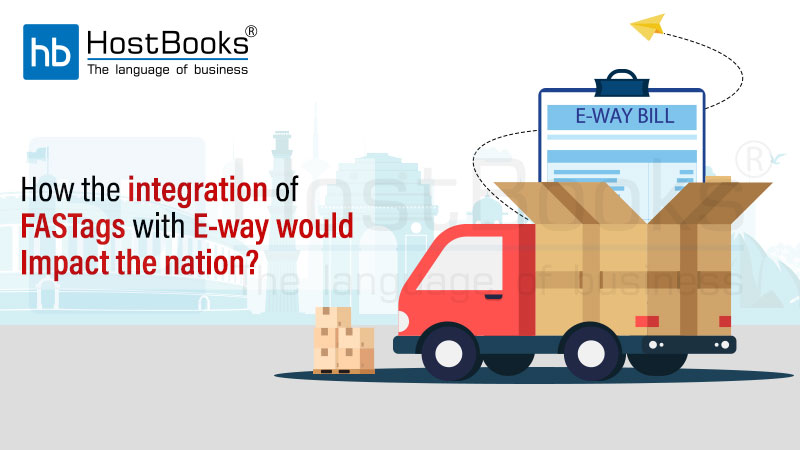How the integration of FASTags with E-way would impact the nation?

The story so far:
From 1st December 2019, a deadline fell by the government of India for the compulsion of electronic toll collection with FASTags on all the national highways. FASTags is a sort of rechargeable tag which can be used for toll payments. As per the announcement, all the lanes on toll station would be converted into fast lanes from December 2019. Tamil Nadu, U.P. Haryana, and some other states have made this conversion successfully.
What is FASTag?
FASTag is radio frequency identification which is prepared to facilitate automatic deduction of toll charges. The FASTag is projected as the ‘Aadhaar’ card for vehicles, which would be fixed on the windscreen of the vehicle. Now you don’t need to stop your vehicle on the toll plaza and the toll charges will automatically be deducted from your bank account or the wallet connected to the FASTags. Currently, these FASTags are available in 22 certified banks, on online platforms, online applications and at some of the selected point-of-sale locations.
When these FASTags are scanned by the tag reader, the fixed amount is deducted and the user receives an SMS alert on his registered mobile phone about the transaction details and the available balance.
One of the monumental decisions that would change the logistics landscape in the country is the integration of FASTags with the GST e-way bill system. The program is implemented by Indian Highway Management Company Limited (IHMCL) which is incorporated by the National Payments Corporation of India and the National Highway Authority of India (NHAI) in coordination with Toll Plaza Concessionaires, banks and tag issuing agencies.
What are the benefits of FASTags?
- Easy payment options, no more waiting in the long queue at the toll plaza
- Cashless transactions
- Easy recharge through internet banking or debit and credit cards.
- SMS alerts for each transaction
- The online support portal as well as cashback and incentives
- Plug revenue leakage and will reduce the cost
What is the impact of integrating FASTags with E-way bills?
Connecting the E-way bill with FASTags can provide better operational efficiencies, now it would be simple to track the movements of goods by SMS alert at each toll plaza. The E-way bill is linked to Logistics Data Bank (LDB) services of the Delhi-Mumbai Industrial Corridor Development Corporation (DMICDC). LDB is using radio frequency identification technology and issuing that information on the e-way bill. Now the government is planning the integration of FASTags with other entities such as a linkage with the fuel station. Now users would be easily paying the fuel franchise in cash. The integration of FASTags with E-way bills can be seen as an approach to curbing tax evasion also.
How will it impact supply chain management and GST?
It will greatly impact supply chain management and GST too. The integration would improve operational efficiency and will ensure the movement of goods toward their specified destination. It will also keep a check on the dishonest traders who take advantage of the loopholes in a supply chain (like in smuggling contraband), they would not be able to carry out their operations.
What are the documents required for registration?
The following documents are required:
- Registration Certificate of the Vehicle
- Passport-sized photo of the vehicle owner
- Driving License
- PAN Card
- Passport
- Voter’s Identity Card
- Aadhaar Card
How much fee is required to be paid?
There is a one-time fee of ₹ 200. The Fee applicable for the issuance of FASTag is as follows:
Joining Fees:
Key points to remember:
- There will be separate FASTtags for separate vehicles.
- If you lose your FASTtags, you can block it by calling the issuer agency.
- While creating a new account, your balance amount would be updated in the new account.
- FASTags are directly linked with the user’s bank account, it means that users don’t need to pay any additional amount, as the toll charges shall be directly deducted from the user’s bank account.
Another step towards digitalization
It is one of the noteworthy achievements that FASTtags have been directly integrated with the e-way bill system. It would bring drastic changes and represent India as a globally approved business and logistics hub. India is taking one more step ahead as a digitally transformed nation by clubbing this integration with the help of automation in GST return filing and generation of e-way bills by organizations.

Try HostBooks
SuperApp Today
Create a free account to get access and start
creating something amazing right now!














